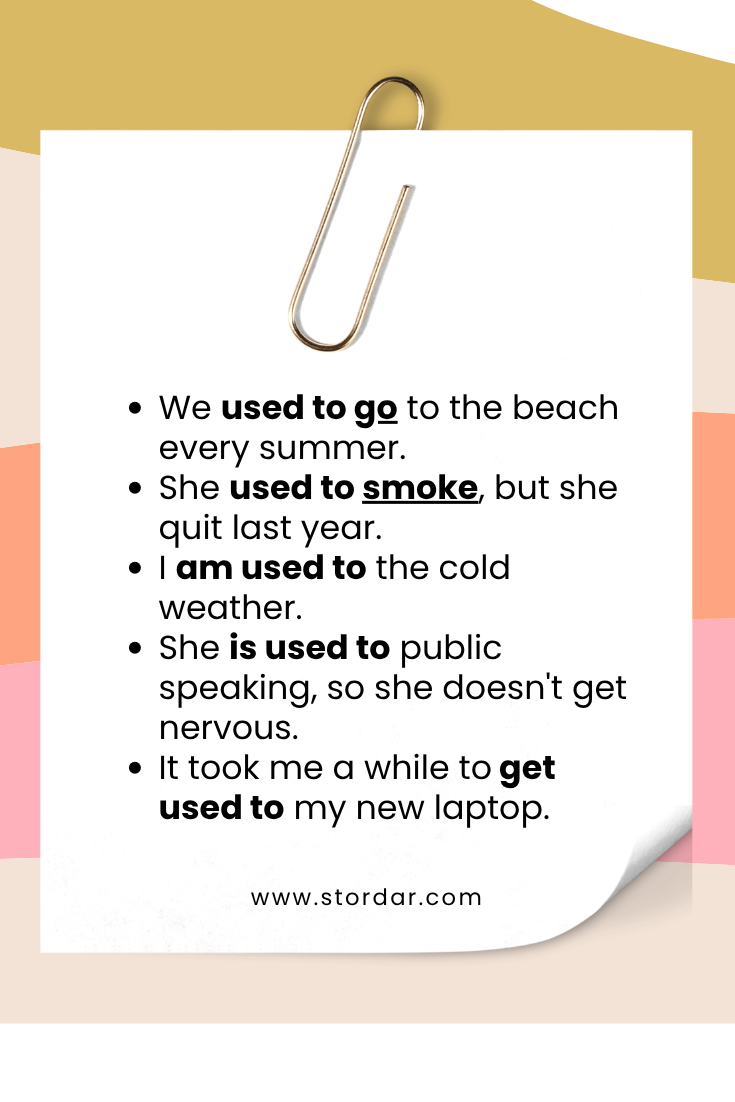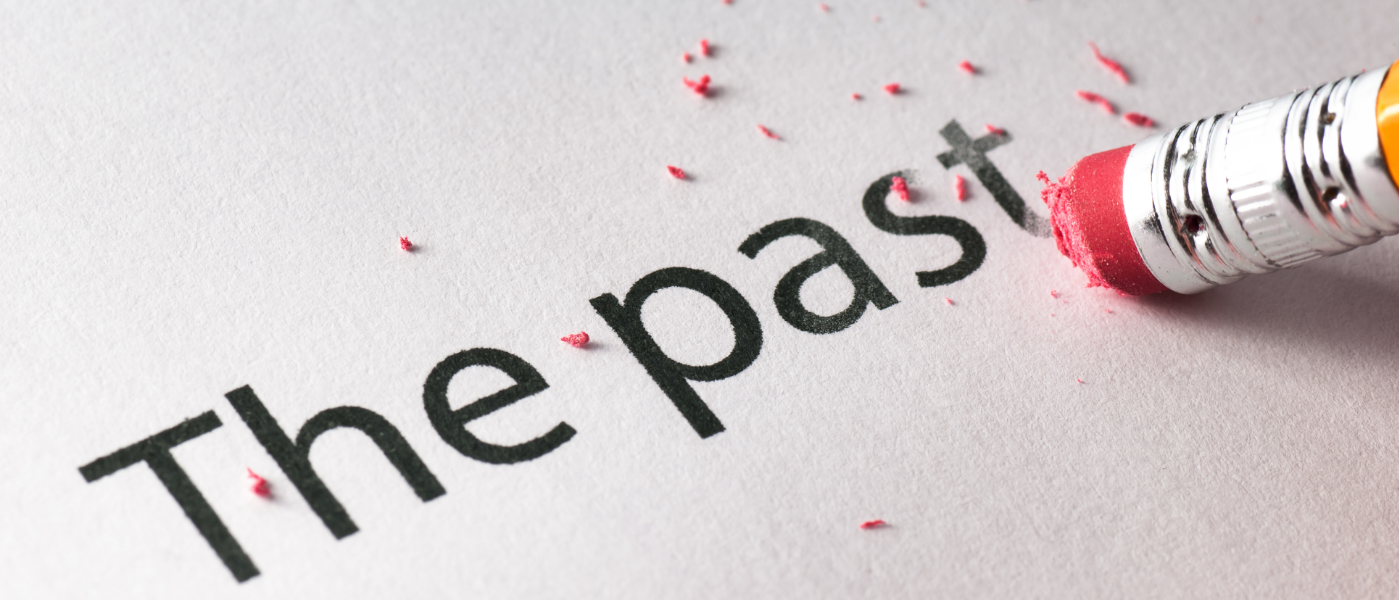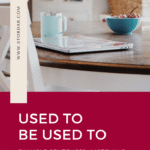When we talk about habits in English, we often need structures like USED TO, BE USED TO, and so on. They can be quite confusing to English learners, and they often misuse them.
In this article, I suggest a simple yet powerful way of mastering English speaking patterns:
- read a short explanation of how the pattern is used;
- read and listen to as many examples of it used in sentences as possible;
- repeat the sentences aloud;
- use the patterns in your own sentences (and check them with ChatGPT);
- do a practice quiz.
This way, you can improve your listening, grammar, and speaking skills at the same time. Let’s try?
How to use patterns with USED TO
There are three main structures which are used to talk about habits in English:
- USED TO – something which was true in the past but is no longer true
- GET USED TO – developing a new habit
- BE USED TO – a habit in present – when we do something regularly and enjoy it.
It is also possible to use WOULD as an alternative to the USED TO pattern. I will cover it in this article too.

Past: USED TO
USED TO + V1
DIDN’T USE + V1
You can use this pattern to talk about:
- actions you did in the past regularly or often (WOULD is also possible here)
- something which was true in the past but not anymore
USED TO examples:
- We used to go to the beach every summer, but these days we hardly do it.
- She used to smoke, but she quit last year. (she doesn’t smoke now)
- That’s what my father always used to say. (my father said it very often in the past)
- She used to go to work by car, but these days she takes the train.
- I used to live in Paris (I live in another city now)
- We’re eating out more often than we used to. (we didn’t go out and eat in restaurants much, but we do so now)
- Jake used to be a friend of mine. (we were friends with Jake in the past, but we are not friends anymore)
- He used to be a teacher. (but he is retired, and doesn’t work as a teacher now)
- I used to be afraid of spiders, but I’m not anymore.
- This restaurant used to be a bakery. (in the past it was a bakery, but now it’s a restaurant)
- You didn’t use to be so angry with everybody. What’s happened?
- Didn’t you use to have long hair? (I had an impression you had long hair in the past)
Be careful: in the negative form it is DIDN’T USE TO, not didn’t used to
When you talk about actions (not states), you can use WOULD instead of USED TO:
- We would go there every day! (=We used to go there every day).
WOULD is especially popular when you tell some stories about your past.
PRESENT: BE USED TO
BE USED TO + Ving
BE NOT USE + Ving
When you describe something which is a part of your daily life, especially if you like to have it this way, the pattern BE USED TO will come in handy.
- I do the dishes every day, so I’m used to it. (=I’m ok with doing it)
- I am used to the cold weather. (=I don’t feel uncomfortable when it is cold outside)
- She is used to public speaking, so she doesn’t get nervous.
- I’ve lived in the UK all my life, so I’m used to rain. (= I have no problem when it rains)
- He is used to working late. (=He often works late and doesn’t feel uncomfortable about it)
- I am used to driving on the left. (=I drive on the left without problems)
- I grew up in the city, and I’m not used to camping.
- Are you used to the new schedule? (=Do you understand it ank ok with it?)
- Are your children used to walking a lot? (=Are they ok with it?)
The other way around, when you use BE USED TO in a negative form, you are talking about something strange or uncomfortable to you:
- I’m not used to such spicy food.
- I am not used to being lied to. (=I am uncomfortable with when people lie to me)
- He wasn’t used to the noise of the city, but he is now.
- He isn’t used to living in New York. (=He feels strange and uncomfortable here)
BE in this pattern is a preposition, so it can only be followed by a noun (weather), a pronoun (it, this), or a Ving form (working), not a simple verb
CHANGE: GET USED TO
GET USED TO + Ving
Because the verb GET often shows a change of state or emotion, it can be used to show a change in habits too.
For example, you used to live in France, and always drove on the right.
- You were used to driving on the right.
Now, you’ve moved to England, and you need to drive on the left. So, you need to change your habit and start driving on the different side of the road. So:
- You need to get used to driving on the left. (=you need to develop a habit of driving on the left)
This pattern is usually used like this:
It’s easy or hard to get used to something or doing something
You can’t get used to something or doing something
You are (slowly) getting used to something or doing something
GET USED TO examples
- I can’t get used to the idea that you’re grown up now. (= I still think of you as a kid, and it’s hard for me to begin to think differently)
- She is getting used to waking up early for her new job.
- It took me a while to get used to my new laptop.
- You never really get used to being alone.
- It is difficult to get used to another country’s customs.
- They couldn’t get used to the noisy neighbourhood, so they moved.
- They’re still getting used to living in a new country.
- How long did it take you to get used to your new job?
- It’s surprising how quickly you get used to things.
If you want to listen to more examples of sentences with these patterns, you can use this website.

Practice Quiz
If you want to check how well you understand patterns with USED TO now or would like to practise, try our free quiz. It will take you about 3 minutes to complete.
As you can see, these three patterns with USED TO are really useful for expressing some common emotions and ideas. They will help you a lot in communication!
So, be sure to practise them regularly, for example, by reading and listening to real-life English. You are sure to see them in many texts and dialogues.
If someone moves to your country or the country where you live now, what do they need to get used to? Give some examples in the comments. Try to use patterns with USED TO in your sentences.
You may also find helpful
Best books for learning English grammar
English Prepositions | Free Quiz
If you like learning and practising English with me, consider supporting me by buying me a coffee:








If someone is planning to visit Canada in winter, they will need to get used to snow.
Great, Jasan!👍
Mam you are awesome and it’s so amazing.its really helpful for me to understand it.
Hi Sadia, thanks for your comment. Happy to help!
I agree
Its very good
You are So good